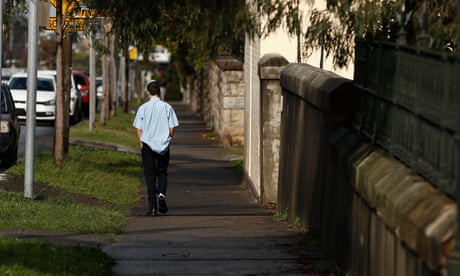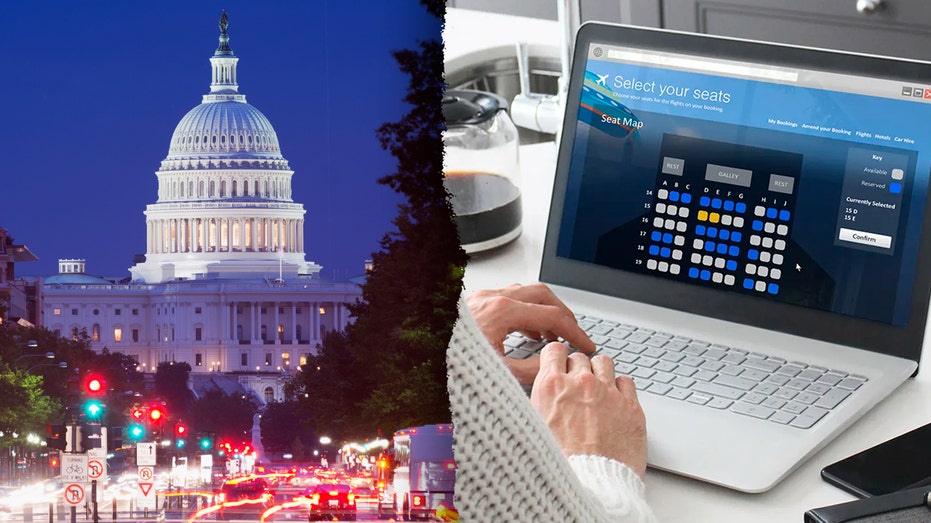- by foxnews
- 22 Jan 2025
‘Early signs get missed’: moves to support Australian families whose children refuse to go to school
‘Early signs get missed’: moves to support Australian families whose children refuse to go to school
- by theguardian
- 28 Sep 2022
- in news

Teachers across New South Wales will learn to deal with families struggling with school refusal, with about a third of students in years 1 to 10 falling below 90% class attendance over the course of a semester last year.
But an expert on the problem said it is vital that all states and territories change how student absences are recorded to better track school refusal.
The term "school refusal" refers to a student experiencing severe emotional distress when they are required to attend school. Some miss all or part of the school day, some might not go to school at all for extended periods, and a growing number of families are dealing with children feeling distressed about attending classes.
One Victorian mother of two has spoken about the difficulties she's faced in dealing with her nine-year-old son's school refusal, describing his teachers as "good people" who have "no resources or specialist knowledge" in dealing with the issue.
Lisa McKay-Brown, associate professor at the University of Melbourne's graduate school of education, said school refusal was distinct from general absenteeism due to the significant distress experienced by young people and required a targeted strategy.
"It can start slowly but progress quite quickly and it often looks like other things, so often early signs for at-risk students get missed," she said.
"Generally they are still attending school when the early warning signs start, so it's much easier to intervene while they're still there, than when they've disengaged or aren't turning up a day or two a week. It becomes so much harder," McKay-Brown said.
On Tuesday NSW's auditor general revealed that about a third of students in Years 1 to 10 attended school less than 90% of the time in semester one last year, an absenteeism rate that puts their education at risk.
The state's Department of Education said it was now working with NSW Health to develop a school refusal program to help teachers identify the issue early and make sure appropriate support was in place.
"We're committed to supporting our students in every aspect of their learning so they achieve their full potential," a spokesperson said.
"School refusal can be a challenging situation for families and schools to manage as it requires everyone to work together to improve attendance."
Last year, the department and NSW Health launched a school-refusal e-learning model for adolescent and mental health clinicians and school counsellors.
Guardian Australia understands NSW will also launch a media campaign targeted at parents to reinforce the benefits of regular attendance in school in term four.
In Queensland, the state-wide school attendance rate for 2021 fell slightly below 90% last year. Data on school refusals in the state is unavailable, as such absences are captured under the broader category "Illness and medical appointments".
Queensland's Department of Education has a fact sheet to help parents whose children have anxiety about going to school and is providing $106.7m to fund an additional 464 "wellbeing professionals", including psychologists, to public schools.
"If a child demonstrates a reluctance to go to school, parents are encouraged to work closely with the school, who would employ a range of strategies to support the student to attend," a department spokesperson said.
McKay-Brown said it was vital school data systems were nuanced enough to capture specificity of absenteeism.
"If a student is away, that absence must be categorised appropriately so the school knows if it is something that has to be followed up," she said.
In Victoria, the state government has committed $200m to provide every primary school with a mental health and wellbeing leader by the end of 2026, to reduce mental health issues among young students.
The funding will be allocated to 1800 government and low-fee non-government schools.
Victoria also has a Navigator program to provide a case worker to students enrolled in government schools who are not currently attending or struggling with attendance.
- by foxnews
- descember 09, 2016
President Trump's inauguration and travel: Here's when DC flights, hotel stays should decrease in price
Hotel and airline prices have spiked in response to President Donald Trump's inauguration, but it may take some time for Washington, D.C., travelers to see costs return to normal.
read more


